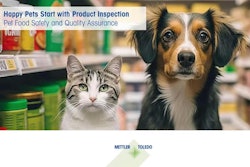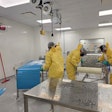Nestlé Purina PetCare has announced a new five-year collaboration with the University of California, Davis, School of Veterinary Medicine to advance scientific research in urinary tract health for dogs and cats. The partnership, supported by a grant of up to $200,000 annually, aims to explore the connections between diet, environmental factors, and urinary conditions in pets, particularly focusing on urinary stones.
The grant, which totals nearly $1 million over five years, will fund the G.V. Ling Urinary Stone Analysis Laboratory (USAL) at UC Davis. This will allow veterinary practitioners to receive free urinary stone analysis results for their patients, advancing both research and clinical care for animals suffering from urinary diseases.
Sheri Smithey, senior vice president of global petCare R&D at Purina, emphasized the potential of the collaboration to deepen the understanding of how various factors influence urinary tract health in companion animals. The data from USAL submissions will help expand research into urinary conditions like urolithiasis (urinary stones) and develop innovative solutions for disease management.
Dr. Jodi Westropp, director of USAL, highlighted the complexity of urinary stone disease and the importance of tailoring preventive strategies for pets. The research will also address other common conditions like feline idiopathic cystitis and urinary tract infections in dogs.
UC Davis has been a leader in veterinary urology research, having contributed to the recent establishment of the American College of Veterinary Nephrology and Urology (ACVNU) as a recognized specialty. UC Davis is also known for its strong program in veterinary nutrition, with three board-certified nutritionists and a leading residency program.
This collaboration with Purina strengthens UC Davis's position as a trailblazer in both urology and nutrition in veterinary medicine, providing critical resources to veterinary professionals and improving patient outcomes.
For more information about Purina and its research initiatives, visit the UC Davis School of Veterinary Medicine's website.














